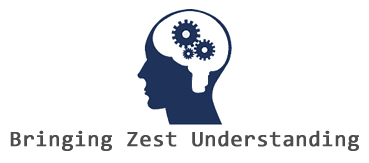How can i get better at improv
Better at Improvisation
Improvisation, or improv, is a form of live theatre where most or all of what is performed is created spontaneously by the performers without a script. Becoming better at improv involves developing a set of skills and techniques that can enhance your creativity, spontaneity, and collaboration. Here are some tips to help you improve your improv skills:
1. Embrace the “Yes, And” Principle:
- “Yes, And” is a fundamental rule in improv. Accept what your scene partner offers (“Yes”) and build upon it with your own contribution (“And”). This principle promotes collaboration and keeps scenes moving forward.
2. Active Listening:
- Pay close attention to your scene partner’s words, tone, and body language. Effective improv relies on active listening to understand the context and respond appropriately.
3. Be Present in the Moment:
- Focus on the present moment rather than planning ahead. Trust your instincts and respond authentically to what is happening in the scene.
4. Practice Spontaneity:
- Engage in activities that encourage spontaneity and quick thinking. Play word association games, participate in group exercises, and expose yourself to situations where you need to think on your feet.
5. Build Characters:
- Develop distinct characters with unique traits, voices, and perspectives. Characters add depth and interest to scenes and help establish a strong foundation for improvisation.
6. Use Physicality:
- Incorporate physical movements and gestures to express emotions, relationships, and actions. Physicality adds richness to scenes and helps convey information to the audience.
7. Take Improv Classes:
- Enroll in improv classes to learn from experienced instructors and practice with a diverse group of participants. Classes provide structured guidance, feedback, and a supportive environment for growth.
8. Watch and Learn:
- Attend improv shows or watch performances online. Observe experienced improvisers to understand their techniques, timing, and how they handle unexpected situations.
9. Don’t Fear Mistakes:
- Embrace mistakes as opportunities for creativity. Improv is about taking risks and learning from the unexpected. Treat mistakes as valuable learning experiences.
10. Know Your Team:
- Develop a strong connection with your improv team. Trust and familiarity with your teammates’ styles and tendencies can enhance the overall performance.
11. Explore Different Improv Formats:
- Experiment with various improv formats, such as short-form games, long-form scenes, or musical improv. Trying different formats can broaden your skill set and keep your performances dynamic.
12. Reflect and Learn:
- After performances or rehearsals, take time to reflect on what went well and what could be improved. Constructive self-reflection is key to continuous improvement.
13. Stay Positive and Supportive:
- Foster a positive and supportive atmosphere in your improv group. Encourage your teammates and celebrate each other’s successes, fostering a collaborative and enjoyable experience.
Remember, becoming proficient at improv is a continuous journey of learning and growth. Enjoy the process, have fun, and allow yourself to take risks and explore the limitless possibilities of spontaneous creativity.

